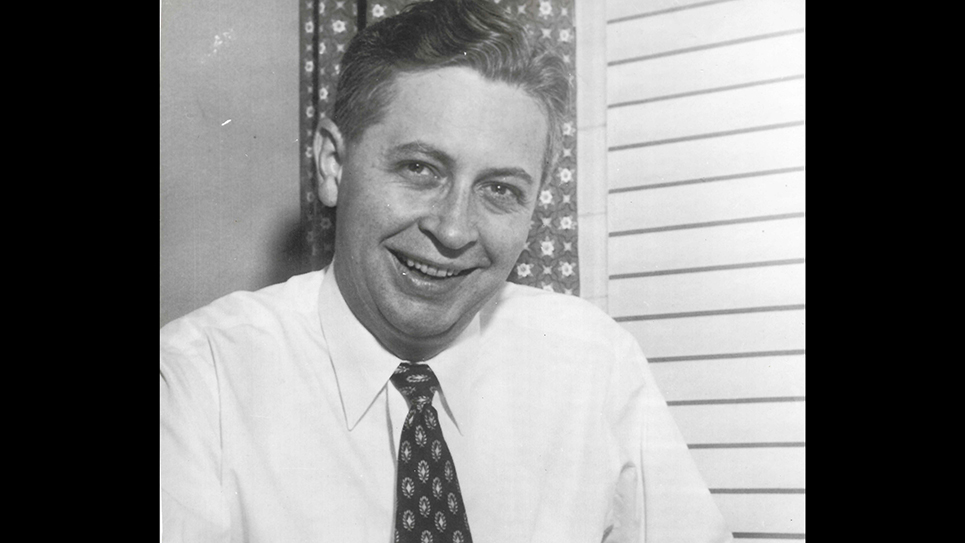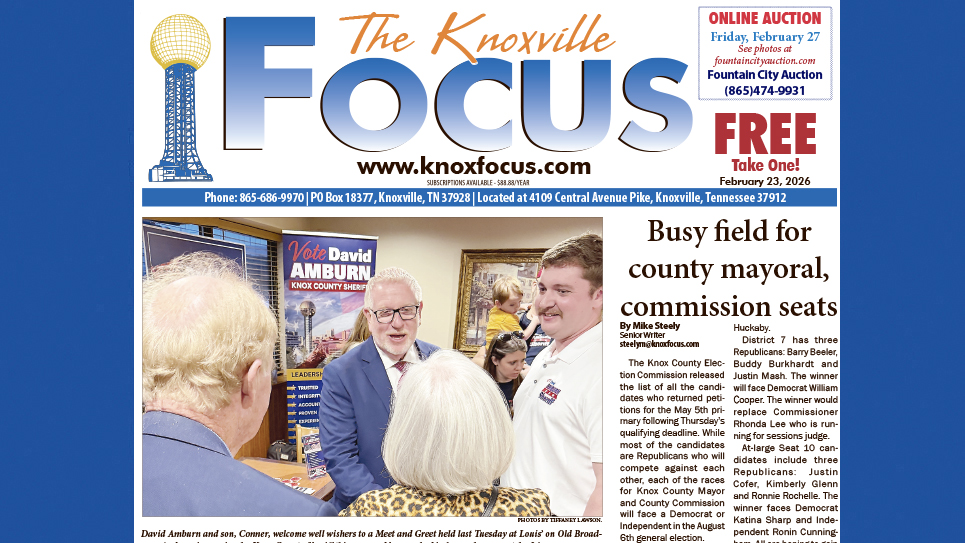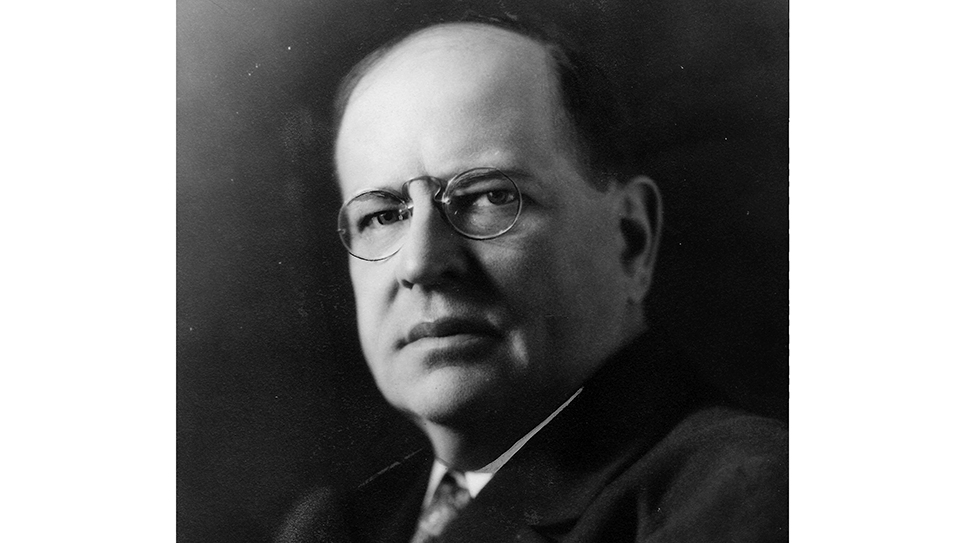The Senator From Washington State
Hugh B. Mitchell
By Ray Hill
Hugh Burnton Mitchell was a scholarly man with an earthy streak who had made his way through life as a sports reporter when he found the Great Depression had left him unable to finish his courses at Dartmouth College. Mitchell was a native of Montana, having been born in Great Falls, the son of Harry Mitchell, who later served as chairman of the U.S. Civil Service Commission. Harry Mitchell had spent the majority of his life working as a newspaperman.
Hugh Mitchell moved to Puget Sound in 1931 and became the political reporter for the Everett News and watched as the politics of the Evergreen State changed. Mitchell believed Franklin D. Roosevelt and the Democratic ticket would sweep out the Republicans, which it did, including United States Senator Wesley L. Jones, who had spent more than three decades in Congress. Hugh Mitchell was one of the first journalists to predict the coming Democratic wave.
One of the winners of the Democratic landslide was Monrad Wallgren, a jovial, backslapping optometrist and jeweler of Swedish descent who had won election to the House of Representatives. The 25-year-old Mitchell went to Washington with Congressman Wallgren, where he performed the role of chief of staff throughout twelve years of service. When Wallgren ran for and won a seat in the United States Senate in 1940, Mitchell assumed the same role in Wallgren’s Senate office.
Mon Wallgren was thought to be one of the most popular politicians in the state and was the choice of Democrats to challenge GOP Governor Arthur Langlie in the 1944 election. Wallgren won and had the right as governor to appoint his successor in the U.S. Senate. Rumors began floating around Olympia that Governor Wallgren intended to appoint Mitchell to the senatorial vacancy. Congressman John M. Coffee, who badly wanted the appointment himself, said he was thoroughly surprised when Wallgren appointed Mitchell on January 11, 1945.
Wallgren was the national amateur billiards champion in the United States, and when he ran his first race for Congress, Hugh Mitchell covered the campaign for his newspaper. Soft-spoken and bespectacled, Hugh Mitchell radiated the image of a young man of crisp professionalism. A big sports fan, Mitchell could tick off statistics and liked fly fishing, which was popular in Washington state. Following his taking the oath of office, the first official act of Mon Wallgren’s governorship was to appoint Hugh B. Mitchell to the U.S. Senate. The appointment gave Mitchell virtually two full years as a member of the United States Senate.
When appointing Hugh B. Mitchell to the Senate, Governor Wallgren said, “Mr. Mitchell can step into my office, using my files and all the facilities we have for carrying on the work that I have been doing in Congress. He knows the state of Washington through close coordination of federal and state postwar legislation that will provide jobs for the returning veteran and displaced war worker.”
In his first newspaper interview after having been appointed as Washington state’s junior United States senator, Hugh Mitchell immediately announced he would be a candidate in the 1946 election. Mitchell’s appointment meant that both of the Evergreen State’s U.S. senators were freshmen members of that body. Congressman Warren Magnuson had been elected in 1944 to succeed the retiring Homer Bone, who had been appointed to a federal judgeship. Magnuson took office on December 14, 1944, and was senior to Mitchell by less than a month’s service. Washington boasted the youngest duo in the Senate; Magnuson was 39, and Hugh Mitchell was 37 when he was first appointed. Magnuson had described Hugh Mitchell as “probably the hardest working and best informed man on Capitol Hill.” The two expected to work in tandem on behalf of their state, and Hugh Mitchell described it in a sports analogy, saying, “The play will be: Wallgren to Magnuson to Mitchell.”
Hugh Mitchell proved to be a studious and hardworking member of the Senate and assumed Wallgren’s place on the Mead Committee, the successor to the famed Truman Committee, which was investigating wartime contracts. Senator Mitchell almost immediately ran into trouble when Congressman John Coffee was hauled before the Mead Committee to explain a check for $2500 (about $52,000 today) from a contractor. Coffee explained it had been a campaign contribution, although it had been written in 1941 when there was no campaign. Coffee explained he had used the money to reimburse himself for expenses incurred during his 1938 and 1940 campaigns. Congressman Coffee, who had wanted the senatorial appointment, never recovered from the bad publicity generated by the revelation and his lame explanation.
The American people were chafing under wartime regulations and deprivations that had continued after the Second World War had ended. Veterans were coming home and becoming candidates for public office. One of those candidates was Harry P. Cain, the mayor of Tacoma, who had fought at the bloody Battle of the Bulge. Cain had been the GOP senatorial candidate in 1944, even though he was in Europe. Cain ran a good race in absentia and proved to be a better candidate in person. Democrats were shocked when the totals for the primaries were tallied and showed a strong vote for the Republican candidates. Republican candidates ran under the slogan “Had Enough?” which emphasized the fatigue of the people with wartime restrictions and regulations.
Harry Cain was a good speaker and waged an aggressive campaign and kept Senator Mitchell on the defensive. Mitchell had the all-out support of Governor Wallgren’s organization, as well as that of organized labor. Governor Wallgren praised his appointee and said there was “no excuse” for electing anyone else to the U.S. Senate. “Mitchell is too well qualified and too well informed about what is going on to be set aside,” Wallgren argued. “If the election is decided on a question of politics he will be defeated. If the decision is for the best interests of the state, he will be elected.”
The voters in Washington didn’t agree and elected Harry Cain instead. Cain won a comfortable victory. At the same time, Congressmen Hugh DeLacy, John M. Coffee and Charles Savage were beaten by Republican candidates.
Mitchell left the Senate and immediately formed a consulting firm specializing in western industry and business, which incorporated the vast knowledge he had accumulated while working in Washington, D.C. Mitchell returned to Washington state following his loss in the U.S. Senate race. Mitchell was determined to make a comeback and lowered his sights to consider a campaign for the U.S. House of Representatives from Washington’s First District. Congressman Hugh DeLacy had been a member of the Seattle City Council before running for and winning a seat in Congress. DeLacy was far to the left of most Democrats and had actually voted against the renomination of Franklin D. Roosevelt in 1940, calling the president a “warmonger.” DeLacy changed his tune when Hitler broke his pact with dictator Josef Stalin and invaded the Soviet Union. The Spokane Spokesman-Review flatly charged DeLacy of being a Communist. Harvey Klehr, a noted professor of history and politics at Emory University and the leading scholar on the Communist movement in the United States, indicated DeLacy was secretly a member of the Communist Party when he was first elected to the Seattle City Council in 1937. DeLacy had lost the 1946 election to Republican Homer Jones, a former mayor of Bremerton.
Mitchell entered the race to represent Washington’s First Congressional District, which he calculated was ordinarily Democratic since the advent of Franklin Roosevelt and the New Deal. Mitchell did nothing to endear himself to Harry Truman when he sent the president a telegram urging him to step aside and draft General Dwight D. Eisenhower at the 1948 Democratic National Convention.
Hugh Mitchell campaigned in the general election against the record of the 80th Congress, which had been controlled by the Republicans. Mitchell demanded repeal of the Taft-Hartley Act and compared Congressman Homer Jones with Tom Dewey in his determination not to discuss the issues. “This is the Republican formula,” Mitchell charged. “Be evasive, talk around the subject, ignore the record of the 80th Republican Congress.” Clearly still nettled by his loss two years earlier to Harry Cain, he challenged the GOP senator to come into Washington’s First District to defend his own record as well as that of Congressman Jones.
Voter interest was at its peak, not only because of the presidential race between Harry Truman and Tom Dewey, but also because of the red-hot grudge match between Governor Mon Wallgren and his predecessor, Arthur Langlie, who was waging a determined bid to recapture the statehouse.
Hugh Mitchell edged past Congressman Jones, winning by 7,800 votes. Following his election to the House of Representatives, Hugh Mitchell was feted at a dinner in his honor by the Women’s Democratic Club of Kitsap County. Mitchell’s speech was carried over the radio, and he told the audience he believed the Democrats had won such a sweeping victory because the people wanted the new Congress to correct the failures and mistakes of the previous Republican House and Senate.
Mitchell went back to Washington, D.C., having won a seat in the House of Representatives on his own and despite his longtime patron Mon Wallgren having been beaten by Langlie, who was the best Republican vote-getter in Washington state in a quarter century.
When Mitchell sought reelection to a second term in 1950, he faced Mrs. F. F. Powell in the general election. Mrs. Powell was not only the GOP nominee but also a member of the Seattle City Council who looked like a well-to-do matron with rimless glasses and lacquered hair piled atop her head. Mrs. Powell was vocal and energetic despite being well into her sixties at the time. Mrs. Powell knew how to campaign and had served on the city council for a number of years. The councilwoman deftly deflected specific questions throughout the campaign, noting, “Should candidates be chosen on the basis of how much they know about the job, an incumbent would never be replaced.”
The feisty Mrs. Powell made a race of it, and Mitchell won by little more than 6,000 in a district which encompassed Seattle and Kitsap County; it was one of the most populous congressional districts in the country.
In 1952, Mitchell chose not to run for reelection, but rather to compete against Arthur Langlie, who was running for a third term as governor. Mitchell was hampered by a bitter Democratic primary where his opponent suggested the former congressman was soft on communism. Mitchell won the primary but never gained the momentum needed for the general election, especially against a shrewd campaigner like Arthur Langlie. In a hard-fought campaign, Langlie won a decisive victory.
Mitchell tried to reclaim his seat in the House in 1954, but he lost to the Republican incumbent. Hugh Mitchell made his final bid for Congress in 1958, seeking a seat from a neighboring district, but lost the general election to Congressman Jack Westland.
After his final defeat in 1958, Mitchell settled into the business world and continued to be active both politically and civically. In 1980, the former senator was campaigning for Ted Kennedy, who was challenging President Jimmy Carter inside the Democratic primaries. Mitchell complained to fellow Democrats that Carter “doesn’t know how to get things done.” Mitchell noted Carter had “made a great many promises” during his 1976 campaign and “less than 20 percent have been enacted.”
Despite Mitchell’s support for Ted Kennedy, President Carter appointed the former senator to a special commission on the Presidential Commission on Japanese Internment during World War II. It was the last public service performed by Hugh Mitchell.
Advancing years saw Mitchell admitted to a nursing home, where he died on June 10, 1996, at age 89. Hugh Mitchell was remembered by friend and foe alike as a kind and caring man who fervently believed the government was meant to help people.
© RAY HILL







